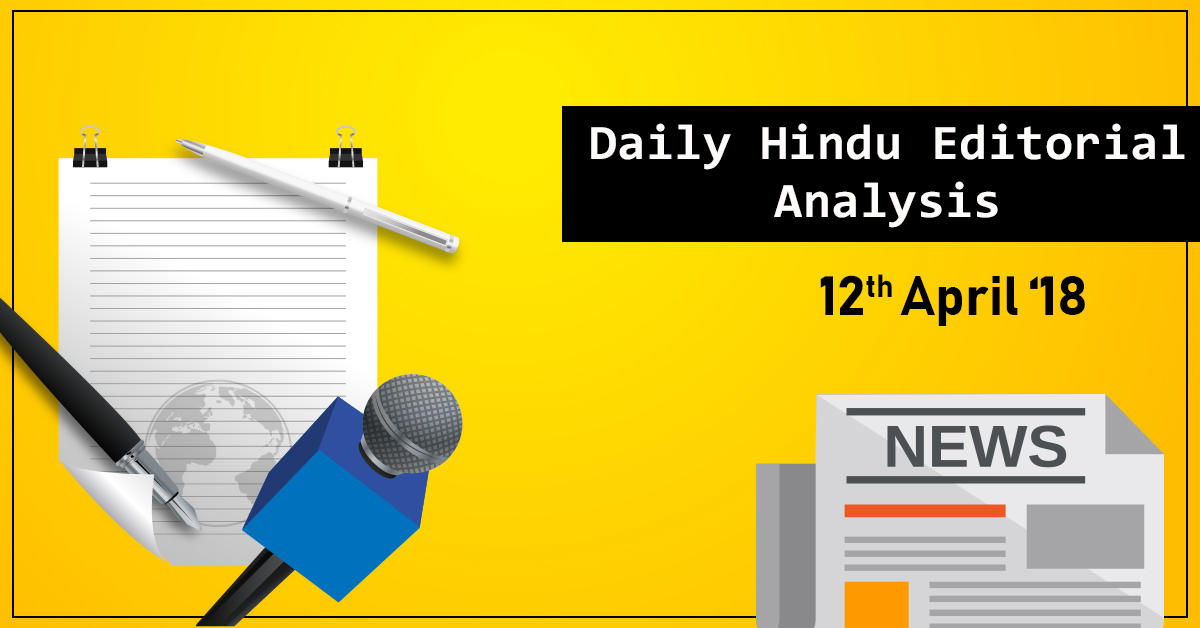Table of Contents
Heed the federal framework- 15th FC
Constitution provides for the appointment of a Finance Commission every five years to –
recommend methodology to share resources
Commission have created apprehension among States about principles of fairness
and equity in the distribution of public resources for development
First, Article 1 of the Constitution of India recognises India as a Union of States.
The unity of India can be preserved only if there is real fairness and equity in the
matter of devolution of powers and resources to the States by the Central government.
The States in India today neither have the resources to fulfil their tasks as laid down in the
Constitution, nor do they have the right to raise such resources.
The present situation is not because of the action or inaction of the States but is directly the
consequence of Central government policy
The Centre‟s capacity to mobilise resources is far greater than that of the States
Demographic differences – Using the population data
of 2011 as the base for tax devolution should not reduce the allocation of resources to States th
at have successfully reduced their rate of population growth
It is not the task of a Finance Commission to recommend “road maps for fiscal management”
or to impose its perception of what policies are good for the people of the States.
That is for democratically elected State governments to decide.
Commission may also examine whether revenue deficit grants be provided at all.”
Revenue deficits are offshoots of the path of development followed by States and
cannot be brought down in the short term.
Upholding federalism and fiscal autonomy of the States.
15th Finance Commission to consider proposing performance-based incentives beyond those
relating to fiscal responsibility, population and devolution to local bodies.
These sectors include health, education, forest management, public distribution
of food, agricultural production — the list goes on.
Such development was not because the concerned States received Central incentives.
Best practices were created on their own initiative.
It is not the duty of the Finance Commission to venture into the realm of day-to-day
governance- Elected govT of States will decide what policies are appropriate for our people
The fiscal argument
14th Finance Commission recommendations.
Argument today- Increase in devolution from 32% to 42% led to a reduction of the fiscal
space available to the Union government is not borne out by the evidence.
In practice, when implementing the award of the 14th Finance Commission, the Union govern
ment cut allocations to several Centrally Sponsored Schemes
Finance Commission must facilitate diversity and a democratic path of development
by respecting principles of equity and fairness in allocating resources between the Centre
and States in India
Building India’s talent base
With limited resources and time, it is crucial for States to assess which skills policies will make
the biggest impact
India found itself at the 103rd position in the recent World Economic Forum ranking of 130
nations on the preparedness of talent, it was just another indication of the skills challenge.
Extra 40 crore workers need to be skilled, reskilled or upskilled.
The current official estimate is that slightly more than half a crore people are
being trained annually.
Policymakers are responding swiftly.
But with limited resources and time, which skills policies will make the biggest impact?
New research by Tata Trusts and the Copenhagen Consensus Center for the India
Economists from India and around the globe are now analysing costs, benefits and impacts
of these policies
Andhra Pradesh, skills challenge is clear: more than 97% of the 21 lakh individuals expected
to join the workforce between now and 2022 will be totally or partially unskilled according to
National Skill Development Corporation
Andhra Pradesh needs to skill about half its workforce (or 10.5 lakh people)
entering the labour market by 2022.
Andhra Pradesh has also undertaken an integrated skilling initiative, and the Andhra Pradesh
State Skill Development Corporation (APSSDC) has been established as a public-private partn
ership with the hope of skilling two crore people in 15 years
Loan assistance to small- and medium-enterprises (SMEs) to encourage expansion
and job creation.
Research highlights the strong case for A.P. to invest more in expanding access vocational
training programmes and need to study the costs and benefits of skills policy options across
India
Prelims Focus Facts-News Analysis
Page-1- IPL matches shifted out of Chennai
Owing to security concerns, the remaining six matches of the Indian Premier League
(IPL) in Chennai have been moved out of the city. Pune will be CSK‟s new home venue.
Prelims Focus Facts-News Analysis
Page-1- It is CJI‟s right to allot cases: SC
„He is an institution in himself ‟
A Supreme Court Bench led by Chief Justice Dipak Misra on Wednesday declared the
Chief Justice of India as an “institution in himself” with “exclusive prerogative” to
constitute Benches and allocate cases
Prelims Focus Facts-News Analysis
Page-1- Civic work threatens to sink Charminar: ASI
Hyderabad‟s Charminar, a historic monument that has weathered the elements for 425 years, now faces a unique existential threat: underground pipelines in its proximity.
The Archaeological Survey of India has raised an alarm over pipeline work being
carried out just 20 metres from the iconic structure
Prelims Focus Facts-News Analysis
Users own and control their data: Zuckerberg
257 killed in Algeria plane crash
„99% of MGNREGA wages remain unpaid‟
As per the findings of the NREGA Sangharsh Morcha that tracks the implementation
of the rural employment guarantee law
Missiles are coming: Trump





















 WhatsApp
WhatsApp